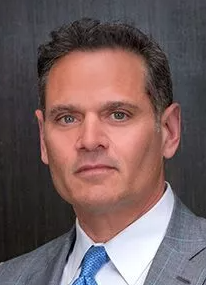More: When Words Matter
Thursday, April 20, 2023 | 1
As an attorney representing injured workers, it is easy to get lost in the weeds as we assist our clients in obtaining medical treatment. We ensure that the primary physicians make the requests for authorization and write reports substantiating the need for the recommended care. It can sometimes be overwhelming, but medical treatment is not what I am getting at here.

Keith More
Recently, I went to a vocational evaluation set up by the defendant in a case involving a severely injured 27-year-old college graduate with a double major. His injuries were massive and complex.
On April 22, 2020, my client was hit broadside by a vehicle that ran a red light. This accident changed his life forever. After being in a coma and following multiple surgeries, my client, Gabriel, has done his best to understand his traumatic brain injury, complex facial and orbital fractures, rib fractures, agitation, poor sight, right shoulder pain, right foot drop, bilateral clavicle fractures, neurogenic bladder, hypertension, pseudobulbar affect, labrum tear and more.
Even with all these injuries, Gabriel attempted to return to school, enrolling in courses designed specifically for people with brain injuries. Unfortunately, he could not adapt to the classroom and dropped out. Since then, he has been denied medical treatment, including home health care, physical therapy and medications. The defendant and the insurer have not agreed to Gabriel’s 100% disability, so my office arranged for him to be seen by a vocational return-to-work counselor. The counselor opined that it is not possible for Gabriel to benefit from vocational rehabilitation and, therefore, cannot return to the open labor market.
With that, the defendant set Gabriel up with another vocational RTW counselor for its own vocational assessment. As we typically do, we hire a court reporter to take down every word during these evaluations. This is a must, with a capital M. I typically have my associate or an assistant appear and observe the session. However, I decided to attend myself, and I am glad I did. You see, “words matter.”
When a vocational RTW counselor asks a leading question, it could be misleading and confuse my client, especially one with a brain injury. For example, “Gabriel, you are 27 years old, right?” He answers, “Yes.”
“You were born on Jan. 23, 1996, right?” His answer: “Yes.” Then, “You were in an accident on April 22, 2020, correct?” His answer: “Yes.”
An evaluator may say, “Oh, he may have a brain injury, but his memory seems excellent.” But is it, though? If you ask Gabriel what his address is without providing it, you will see the effects of his massive brain injury. If you ask him a non-leading question, you will see how he is incapable of ever working again.
After five or six leading questions, I told the evaluator that this line of questioning was improper and that she would have to stop leading him to get a legitimate gauge of his brain injury. Was this an intentional tactic to sway the findings? I certainly hope not.
Thus, when you have a vocational evaluation set by the opposing counsel, do yourself and your client a favor: Hire a court reporter and attend the assessment. It will make a difference, and you will be glad that you did.
Keith More is an applicants’ attorney and co-founder of Bentley & More in Newport Beach, California.



Comments